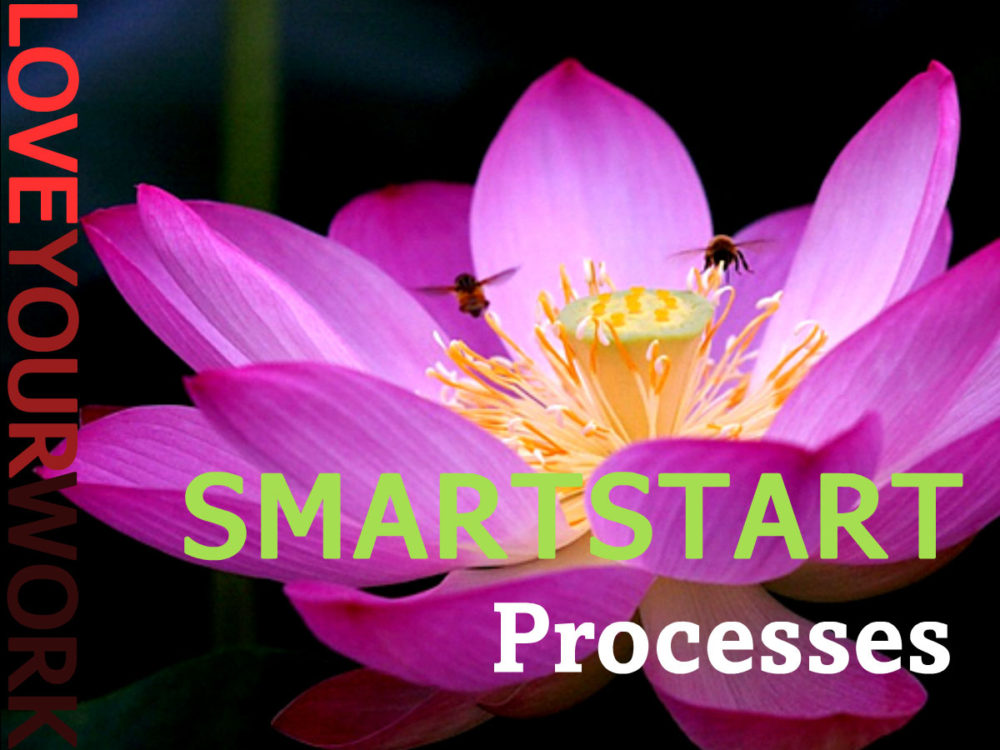The internet is a digital casino.
The human mind is unlimited in terms of imagination. But it’s also one of the biggest obstacles keeping you from achieving business success. For this reason, learning to improve your critical thinking (or cognition as it’s known in expert circles) is a key component built into all SMARTSTART programs.
The very act of thinking is what allows us to find and process enormous quantities of information quickly. The internet has literally exploded the amount of information available to us just for asking. At the same time, it’s created an exponential increase in attention deficit disorders.
You can tell yourself you’re hitting the web to look up one thing. But before you know it, with each link clicked, your brain has taken you down any number of related (or even unrelated) paths. As you wander all over the information highway, your brain is simultaneously processing thousands of subconscious ideas — whether you want it to or not.
Your daily challenge then is to train yourself to recognize the many cognitive biases we all experience so you can make appropriate adjustments in your critical thinking and decision making. Otherwise, you risk making predictable future errors and judgements, any of which can potentially devastate your business and you as well.
We’re all prone to making judgement errors; it’s part of being human. You’ll probably make more than one today alone. So lets explore some of the common (and not-so-common) cognitive biases and how they impact your business.
BIAS #1: Gambler’s Fallacy
This bias is one that keeps casinos rich and gamblers coming back. Probabilities are probabilities. The odds of winning do not change.
Certain probabilities are always the same. For example, the Super Bowl always starts with the coin toss. Whatever the team chooses, heads or tails, the probability of winning the toss is 50%. If you think the probabilities have changed because for the last 5 years the coin toss came up heads, you would be wrong.
Future probabilities are not altered by past events. But thinking they are is what causes gamblers to lose money and casino owners to love the business they’re in.
You see, while the odds are different for each game you play, the probability of winning is constant. Take roulette, for example. It does not matter what the wheel landed on while you were watching it for 10 minutes before placing your bet. What matters is there are 18 reds and 38 blacks, so the probability of landing on red is 47.37% for each and every spin.
Are you gambling with your business success?
Let’s take a look at the probabilities you’re facing right now. Your probability of building a website that makes you money is 1% and your probability of creating a successful business overall is 3%.
I’m sure you’re working very hard; most people are. Perhaps you’ve even spent a lot of money you didn’t have to chase your entrepreneurial dream. Thousands do. But you haven’t changed the probabilities of business success.
The good news is there are many things you can do to overcome the odds. And I’ll bet you’re not doing most of them.
Ask yourself the questions below, then count your yes/no answers if you dare.
- Do you have a written business plan that you update each year?
- Do you have a written marketing plan that you update each quarter?
- Do you know exactly how many people need to buy from you this week to meet your business plan goals?
- Do you know exactly how many people you need to reach this week based on your marketing plan?
- Do you know exactly how many people you need to connect with this week to expand your reach?
- Do you know how much of every planned marketing activity you must do to get the reach you need this week?
- Do you know what kind of response rate you should target for every marketing activity?
- Do you know who your ideal customers are and what their most pressing problem is?
- Do you know the measurable results you deliver to your market and have you defined these for every marketing activity you undertake?
- Do you help every prospect define your value in dollars and cents every time you reach out and touch them?
- Do you know what the daily, weekly and cost of doing nothing will be to your prospect if s/he decides to delay or pass over your offer?
- When you reach out to your market or meet with potential customers, do you talk about them instead of talking about you or your product or service?
- When you speak at an event or do a webinar, do you get more than 25% of the audience asking you for the next action step?
- When reading compelling salesletters for offers you can’t afford, do you tell yourself this is the one thing that instantly will make all the difference to your probability of success?
And now, the most important question of all: When you finish reading this post are you going to take action to improve your chances of overcoming the odds?
More next time. Until then, remember to LOVE YOUR WORK, whatever it may be.
PS Did this post speak to you? If so, please feel free to share it with your own communities, friends and followers. Thanks for sharing the love! ♥♥♥
